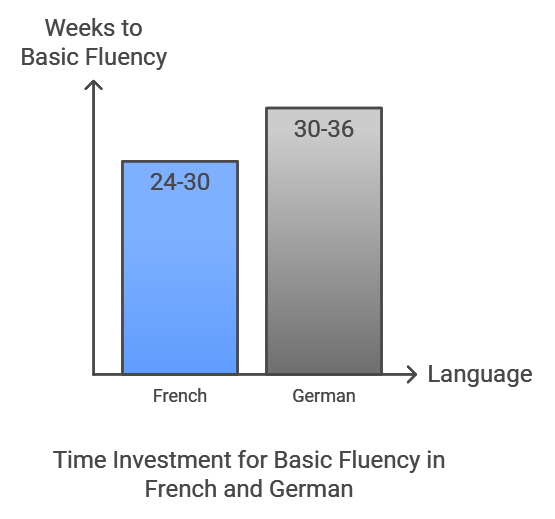Why Learn French Over German? A Comprehensive Guide
Choosing French over German offers broader global opportunities, simpler initial learning curves, and more diverse cultural access. While both languages are valuable, French provides wider geographical reach, more straightforward grammar for beginners, and extensive applications in international business, diplomacy, and arts.
Key Takeaways
- French has 267 million speakers worldwide, with projected growth to 700 million by 2050
- French grammar is more intuitive for English speakers
- French offers broader career opportunities across 29 countries
- Digital learning resources are more abundant for French
- Cognitive benefits are similar, but French provides faster initial progress
Global Reach and Influence
The reach of French extends far beyond Europe’s borders. With official status in 29 countries across five continents, French speakers enjoy unparalleled opportunities for cultural and professional growth.
Speaker Demographics Comparison
| Aspect | French | German |
|---|---|---|
| Total Speakers | 267 million | 155 million |
| Countries (Official) | 29 | 6 |
| Continental Presence | 5 continents | 1 continent |
| Growth Projection | 700M by 2050 | Stable |
Geographical Distribution
French-speaking communities thrive in:
- Western Europe
- North America (Quebec)
- Africa (54 countries)
- Caribbean Islands
- Pacific Regions
Learning Journey Comparison
Initial Learning Experience French offers a gentler introduction for English speakers due to:
- Shared vocabulary (45% similar to English)
- More intuitive sentence structure
- Familiar alphabet and pronunciation rules
Time Investment
- French: 24-30 weeks to basic fluency
- German: 30-36 weeks to basic fluency

Professional Advantages
The professional benefits of French extend across multiple sectors:
High-Demand Industries
- International Relations
- Fashion and Luxury Goods
- Tourism and Hospitality
- Arts and Entertainment
- Digital Marketing
Salary Potential
| Industry | French Premium | German Premium |
|---|---|---|
| Business | +15% | +12% |
| Tourism | +20% | +10% |
| Tech | +12% | +15% |
| Diplomacy | +25% | +15% |
Digital Age Integration
Modern technology has transformed language learning, with French leading in:
Digital Resources
- AI-powered apps (Duolingo, Babbel)
- Virtual reality immersion
- Online tutoring platforms
- Social media communities
Tech Industry Focus
French tech hubs are emerging in:
- Paris (Station F)
- Montreal
- African tech centers
Cultural and Social Impact
French offers unique cultural advantages:
Entertainment Access
- World-class cinema
- Literature classics
- Modern music scene
- Fashion industry
Social Integration
- Welcoming language communities
- Cultural exchange programs
- International student opportunities
Cognitive Benefits
Learning French enhances:
- Memory function
- Multi-tasking abilities
- Creative thinking
- Cultural awareness
Future Prospects
The future of French language shows promising trends:
Growth Areas
- African economic expansion
- Digital transformation
- Cultural industries
- International diplomacy
Industry Growth Projections
| Sector | Growth Rate | Job Opportunities |
|---|---|---|
| Tech | +25% | High |
| Culture | +15% | Medium |
| Education | +20% | High |
| Business | +18% | Very High |
Real-World Success Stories
Consider these examples:
- Tech entrepreneurs in French-speaking Africa
- Fashion industry professionals
- International organization careers
- Digital nomads in French territories
Decision-Making Factors
Ask yourself these questions:
- Do you prefer global reach or regional depth?
- Are you interested in arts and culture or technical fields?
- What are your long-term career goals?
- How quickly do you need to achieve fluency?
Practical Next Steps
Getting started with French:
- Choose a primary learning method
- Set realistic goals
- Find language exchange partners
- Immerse in French media
- Join online communities
Conclusion
French offers a more accessible entry point, broader global opportunities, and diverse cultural experiences compared to German. While both languages have their merits, French provides a more versatile skill set for today’s interconnected world. The combination of simpler initial learning, widespread global use, and growing economic importance makes French a compelling choice for most learners.
Remember: The best language to learn is the one you’ll actually use. Consider your personal goals, interests, and career aspirations when making your final decision.
